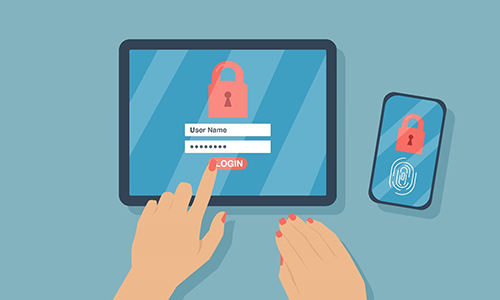If you feel ready to buy your own place and are considering getting a mortgage, there’s one thing you should do first. Mortgage pre-approval is a great and quick way to determine how much you can borrow to purchase the home you want. Your lender will check and review your financial details, including your income, assets, and credit score, to find loan options you could be qualified for.
Once you’re pre-approved, you might be asked to provide documents like bank statements or pay stubs as proof of income. During this process, you’ll find out the maximum amount of mortgage you’ll qualify for, how much your monthly payments might be, and what your interest rate would be.

Why Is Mortgage Pre-Approval Important?
Getting pre-approved allows you to set a total house-hunting budget, which can help you better balance your finances. When you are aware of how much you can afford, it will be easier for you to shop mortgage rates and find the best deals. In addition, you’ll have more confidence in making an offer to a seller because a pre-approval shows that you are a serious homebuyer.
Furthermore, a seller would want an assurance that you’ll complete your purchase of the property. Showing them your pre-approval letter will give you a competitive advantage over other buyers.
How Do You Get Pre-Approved?
Once you’ve made the decision to buy a new home, get pre-approved for a mortgage. To start the pre-approval process, here are some steps you should do:
Collect Relevant Documents
Gathering all the relevant documentation is essential to the pre-approval process. This includes your proof of income, employment verification, proof of assets, credit history, identification, and debt-to-income ratio. Your lender or loan officer will review them to provide you with a loan estimate, which you will typically receive within 3 business days.
Get Your Credit Score Checked
You can give your lender permission to obtain your credit report so they can assess it. Although inquiries from loan officers might cause your credit score to drop slightly, they won’t significantly hurt your credit.
Receive Your Pre-Approval Letter
Once you’re pre-approved, make sure to secure the pre-approval letter that your lender will provide. Most real estate agents would want to see this document before they start showing you houses. This will prevent them from presenting properties that aren’t within your budget.
You can also show the pre-approval letter to the seller when you make an offer. It will work as proof that you won’t have problems financing the amount you’re promising to pay.
Get Expert Help From Us Today
If you need guidance on purchasing your dream home, our mortgage experts at 1st Community Credit Union are here to help. We can tell you about the current mortgage rates and terms, as well as advise you in finding the right options for your budget. You can get started today, it’s as easy as clicking the “Apply Now” button on our website and answering a few simple questions.
Traveling can be a fun and relaxing way to spend your free time. However, it can also be expensive because of accommodations, food, and transportation. So, before you hop on to the next plane, train, or boat, it's best to consider having a plan. Here are some tips on how you can start budgeting for your next getaway:
Select a Destination
You must know where you're heading first before you can make a budget for your vacation. That way, you can estimate the money you'll spend on your transportation. For example, choosing a drivable location can keep you from paying for costly flights. You'll have your car, so you don't need to rent a vehicle anymore.
Additionally, prices may differ per location. What might be affordable in one country may be expensive in another. Determining the range of your possible travel expenses can let you prepare and adjust your budget accurately.

Set Your Priorities
Sometimes, having a budget for your vacation might not be enough to ward off temptations, leading you to overspend. So, it's best to take note of your priorities. Ask yourself if you want to enjoy the attractions, immerse yourself in a foreign culture or try new food.
If you define your priorities, you can align your expectations and focus on achieving your goals. You can also spend less on things you don't need or can find alternatives.
For example, if tasting local cuisine is not that important to you, you can save money by cooking or bringing your food instead of purchasing it at your destination.
Detail Your Budget
Setting money aside may not suffice if you want to spend less on traveling. Instead, having a detailed financial plan to complement it is better. It can save you from overspending because you know exactly where your cash will go. To do that, you have to determine how much you can spend. You should also consider all the factors that can affect your trip, such as your needs and wants, and allocate your cash as you see fit.
Take Advantage of Promotions
Coupons and promotions can save you a lot of money on vacation. They can include more financial-friendly benefits. For example, some hotels offer complimentary breakfast. Taking advantage of their special deal, you can allot the money reserved for your meal to other things like souvenirs or additional snacks.
Promotions might also allow you to receive the same services at a lower price, especially for transportation. Some airlines offer deals that can let you book more affordable flights during a specific time.
Start Saving Early
If you're thinking of going on a vacation, saving money and sticking to a budget is the best way to set your plan in motion. So, you should open a savings account at 1st Community Credit Union in Sparta, WI to place funds for your trip. Call today to learn more about our services.
A house without a pet does not always feel like a home for some. However, when taking in a new animal companion, there must always be some financial planning and budgeting. Depending on your income and monthly expenses, adopting a pet may bring in additional fees that you might have to adjust to. Budgeting your finances is essential when you have a new family member to provide for.
Like humans, pets require food, bedding, and medical care. On average, Americans spend at least $500 a year on their pets’ needs. To ensure a long and happy life for your new companion, you must be financially prepared to provide for their daily needs. A thorough planning ensures that you can support a new family member in your home. Here are some tips on how to make a financial plan for pets:

Be Familiar With the Adoption Costs
The adoption process for dogs and cats often varies but is rarely free. Certain animal shelters may require you to pay for the spaying and neutering of your chosen pet. Additionally, there may be vaccination fees that you must settle before you can take your new companion home. It pays to talk to your chosen shelter first and determine the total expenses before getting a new pet.
Make a List of All the Pet Supplies You Need
Depending on what kind of pet you are preparing for, you must list all the supplies they will need while living in your home. Specialized food, bedding, treats, and toys tend to be costly items that require regular maintenance. Before welcoming your new animal companion, you may opt to do your research on how much certain food brands and pet supplies will cost you per month.
Consider Your Day-to-Day Expenses
Specialized food is something you might have to purchase regularly for any pet. In the case of cats, however, you will also have to spend on cat litter frequently. Before you take in a new animal companion, you must consider how you can afford their day-to-day expenses. Prior research and budgeting are helpful to ensure that you will not overspend.
Plan for Veterinary Care
If your pet has never been checked by a veterinarian or has never received any vaccination, getting an initial evaluation must be considered. While medical care for animals requires additional fees, it will help ensure that your new companion will be free from parasites and health problems. Upon receiving an initial assessment, you may talk to your vet about annual checkups and their fees.
Get Low-Cost Credit for Your Pet Expenses
After doing the planning and budgeting of expenses before welcoming a new animal companion, you might want to apply for a loan or get credit for their initial needs. If you are looking to make a financial plan for pets, 1st Community Credit Union can provide you with the resources that you need. Contact us today!
Saving money is an essential life skill that everybody, regardless of age, should learn about. However, managing finances can be a challenge if you don't have a strong foundation in financial literacy. It’s important to teach kids and encourage them to form healthy money habits right away. When they start early in life, these practices will stay with them and eventually shape them into becoming financially responsible adults.
Parents know that a lot of work goes into teaching children about savings, more than just encouraging them to set aside a portion of their allowance. Kids need to stay motivated and be consistent, but it’s quite a challenge when they don’t understand what they’re saving for. One good way to go about this is by setting short-term and long-term money goals.

Do they want to buy a new toy, or do they just want some spending money on vacation? Regardless of your child’s motivation, we’re here to guide you in teaching them how to achieve it. Here are some smart tips on how your child can raise funds for both short-term and long-term savings goals:
Differentiate Wants and Needs
The first and most important step of teaching kids about healthy money habits is to identify the difference between wants and needs. Start by citing examples of needs (food, shelter, clothing, healthcare, and education) and wants (toys, electronics, etc.).
Then, you can quiz them to test if they can already grasp these two concepts. Doing this can teach them to prioritize spending on necessities over luxuries.
Teach Kids To Track Their Expenses
Being a better saver means being mindful of your expenses as well. Let your kids keep a journal where they can log and see their purchases. Have them add up everything so they can keep track of where most of their allowance is going.
By doing this, you can help your children grasp how important it is to create a balance between their expenses and their savings. This may prompt them to change their practices so they can achieve their goals faster.
Provide a Safe Storage Place
For younger kids, having a piggy bank may be enough. But when your child gets a little older, it may be wise to open a savings account at a local credit union.
Build a Financially Secure Future for Your Child
Saving doesn’t have to be hard work when you have reliable financial professionals by your side. Let our team at 1st Community Credit Union be your partner in ensuring a bright financial future for your kids. Get in touch with our staff to find out how you can open a children’s savings account.
The Benefits of Using Two-Factor Authentication When Banking Online
In today’s world of being able to accomplish most of your tasks virtually, it is important to have two-factor authentication as part of your mobile banking experience. Its main benefits are added security levels and minimizing the risk of consumer identity theft.
Whether your credit cards or personal savings accounts are linked to your mobile app, two-factor authentication decreases the chance of a security breach. Here are more benefits of using two-factor authentication when banking online.

Prevent Fraud
Two-factor authentication, or 2FA, makes it more difficult for hackers to get information from your online banking portal. Someone seeking access to a 2FA-protected account will encounter more obstacles if they are trying to access your account.
A good example of fraud protection is SMS-based two-factor authentication. The hacker will need two means of identification to access your bank: your account password and your mobile phone.
Nowadays, solving simple password combinations and gaining access to sensitive data has become obsolete. This is because having two or more verification steps stops them from gaining access through your password alone.
Using 2FA can further safeguard your accounts against unsolicited access to personal and corporate data. It reduces the risk of cyber breaches from anyone who gets a hold of your primary credentials.
Enhance Logins
Two-factor authentication involves the use of a one-time password, or OTP. This is a string of letters, numbers, or characters delivered once to a user for a single login attempt. OTPs lower the risk of hackers getting into your account by sending time-sensitive, unique, and random code to your phone through a text, call, or an app.
2FA is a more personalized approach to access your online information by involving your other online accounts and devices. Utilizing these personal resources can inevitably add a layer of protection to your account. Using 2FA to have an amplified login system is the best way to maintain strong security standards when opening your mobile bank app.
Reduce IT Calls
Nowadays, the most common support issue is a forgotten password. Without a 2FA solution in place, the only way to retrieve it is by contacting your bank’s helpdesk.
Having your issue resolved by technical service providers can take a long time, and this can be prevented by using a 2FA system. Two-factor authentication simply sends a code to your verified device in order to change your password. This results in a quick, cost-effective, and secure solution to your problem.
Access Monitoring Is Allowed
Two-factor authentication often involves access monitoring for many devices. You can also limit which devices or networks have entry to your banking accounts.
If someone else tries to access your account, you will be warned in real time so you may prevent cyber breaches. Two-factor authentication is the most convenient and the quickest way to ensure that your personal data is safeguarded.
Learn More About Two-Factor Authentication
For questions about two-factor authentication, mobile banking protection, or automated fraud alerts, call 1st Community Credit Union in Wisconsin! Our representative will be happy to answer your questions about online banking.
Recently, the market has shown low numbers of new and used vehicles available for sale. This can be attributed to low-interest rates, consumers running on stimulus and tax refund money, and the pandemic’s uncertainty with supply chains, among other factors. If you are planning to shop for a new set of wheels, doing so can be a lot more challenging than usual. You might not find the car you want in your local dealership.
In addition, car prices are on the rise due to the downward trend of inventory numbers. To help you find the right vehicle, 1st Community Credit Union introduces AutoSMART.

What Is AutoSMART?
Although you may not find the car you want at your local dealership, the good news is that you can find and purchase at other stores through your computer or phone. AutoSMART offers a convenient way to help you find your next set of wheels. With this tool, you can search dealership inventories all over the country in the comfort of your home. This means you no longer have to drive to multiple car lots to look for a suitable auto.
How Does It Work?
With AutoSMART, finding the right car can be as easy as entering your zip code and selecting the type of vehicle you’re looking for. You can narrow down your choices by mileage, year, and price range using the tool’s search filters.
If you can’t see the automobile you want within 5 miles of your zip code, move the slider bar to widen to a full nationwide search. After that, you can sit back and browse the current inventory that matches your vehicle preference. Once you find a car you’re interested in and need more information on it, simply click the “Contact” button to send a message to the dealership where it is offered.
AutoSMART will also help estimate your monthly payments. You can also get your financing approved through this tool, so everything is taken care of when you walk on to the car lot to drive your new vehicle home.
Financing With 1st Community Credit Union
Purchasing a vehicle used to be an all-day activity. It’s a tedious process that starts with driving to your auto dealer, selecting a car you want, haggling over the price, and filling out a lot of paperwork. Then, you have to go back and forth between your dealer and credit union with your payment in hand.
To avoid that, 1st Community Credit Union and Credit Union Direct Lending (CUDL) collaborated to bring AutoSMART to improve your auto-buying experience. We made financing a car so much easier. You just have to decide on the make and model of the vehicle you want through the AutoSMART website. After that, simply visit the participating dealership where the vehicle is located.
Once you’re there, apply for 1st Community Credit Union’s low-rate auto financing through the CUDL system. You can get approved on the spot without needing to visit your credit union branch. All the paperwork is taken care of electronically, so all you have to do is drive your new car off the lot.
Drive Home Your Dream Car Today
If you’re planning to buy a car without all the hassle and stress that comes with the auto-buying experience, call us at 1st Community Credit Union in Wisconsin. Through our easy auto financing program, you can avoid the typical hassle of car buying and save that time for enjoying your new ride.
Finding the perfect property, negotiating a price you can afford, and receiving financing are all important factors in buying a new house. Many homebuyers successfully navigate all three criteria, only to make significant errors before finalizing the purchase. Are you planning to purchase a home soon? Continue reading to discover the dos and don’ts of buying a new property.

Do: Consider Paying for a Professional Inspection
Sellers may not always tell potential buyers the complete picture or they may have done some patch-up work to hide problems in the property until the deal closes. This is why you need help from a professional inspector who can spot possible issues in the property, such as leaks and pest infestations. When you hire an experienced professional to look into your prospective home, you'll save time and money in the long run.
Do: Use a Mortgage Calculator
Your lender can tell you how much house you qualify for but only you know how much you can comfortably afford to pay each month. Mortgage calculators are made to help you determine the right figures. It’s important to only pay a comfortable price so you can still enjoy living a comfortable lifestyle.
A mortgage calculator can narrow down your search for properties that are within your budget. It can also play with the numbers to discover how different home prices affect your monthly payment.
Do: Get Pre-Approved for Your Purchase
Getting pre-approved for a mortgage is a procedure in which you initiate an application with a lender and acquire a conditional commitment for a mortgage. This is a great way to speed up and simplify the closing process once you’re approved. It also shows sellers that you’re serious about buying a property. Do this process to have an advantage when it comes to negotiating for your prospective home.
In the competitive property market, you should do your best to stand out from the crowd. Getting pre-approved indicates that a bank or credit union has already confirmed your information and that you have started the mortgage application process. It also helps you discover possible issues with your prospective home before signing the contract, such as credit report errors.
Don’t: Change Your Job
While changing professions may boost your career, it may make it more difficult to get a mortgage. A lender wants to know that you have a steady source of income and that you can afford to pay back your loan. If you were pre-approved for a mortgage based on a certain income and job, any changes may interrupt the deal and may delay your closing.
Don’t: Make Major Purchases
Another common mistake made by property buyers is to spend on furniture to begin planning for their new living arrangements. It may be tempting to begin purchasing furniture and appliances to furnish your new house, but it’s important not to splurge for the meantime.
Whether you use your bank account or credit card, taking on new debt for these household items can affect your credit score and may raise a red flag for the lender. This may result in your loan approval being denied.
Apply for a Real Estate Loan Now
Ready for a home loan? Contact 1st Community Credit Union in Wisconsin if you are planning on buying a new property, such as a home for your family. Our team of lending professionals will gladly answer all your questions about mortgages.
Purchasing a home is a major investment. Undeniably, getting to that point demands some level of financial stability. Before you can even turn a key in a door, you will need to look for an appropriate home loan, come up with a down payment, and pay closing charges.

Because of those fees, many people who take on this major responsibility may think homeownership is only about owning a property and paying their dues. The truth is having your own home has a lot of benefits. Continue reading to discover the perks of homeownership.
Owning a Home Builds Equity
Having high equity means getting a higher cash value out of the sale of your property. You should take into account if you’re planning to sell it in the future.
For most homeowners, the equity built up in their homes also becomes their largest financial asset. You can accumulate equity in your house while you pay off your mortgage each month. This is different from paying rent—instead of making monthly payments to a landlord, you will be contributing to a real asset.
After selling your property for a high profit due to equity, you may reinvest in a new home or another type of property. You can also use your home to start building wealth right away by renting it out or house hacking. This is why buying a house is typically regarded as a wise financial decision.
Getting Your Own Home Means Having More Control of Things
One of the most significant benefits of homeownership is having control over the costs of your space. Unless the conditions of your mortgage change, you already know how much it will cost you to live in your house every month. Renting can be unpredictable, and the price of the property may alter over time. On the other hand, owning a property will keep your costs controlled and provide you peace of mind.
You will also have full control over your space. When you own the property you live in, you can renovate it to your liking as much as you want. You could also enjoy the freedom of decorating your home, owning pets without having to worry about landlord rules or added fees, and having a backyard space where you can enjoy the outdoors.
Having Your Own Home Provides a Sense of Belonging
Owning a home helps you create long-term bonds with your neighbors and other members of your community. It’s because homeownership eliminates the risk of a premature move that can hinder you from forming close relationships with friends and local businesses in the area. Settling down can give you a new sense of security and bring more comfort into your life.
Start Your Journey to Homeownership
Finding the appropriate home loan can make all the difference when it comes to one of your most significant investments—your own house! Call 1st Community Credit Union in Wisconsin today with your questions about buying a home. Whether about mortgage terms or homebuyer programs, our experts will gladly answer them for you.
